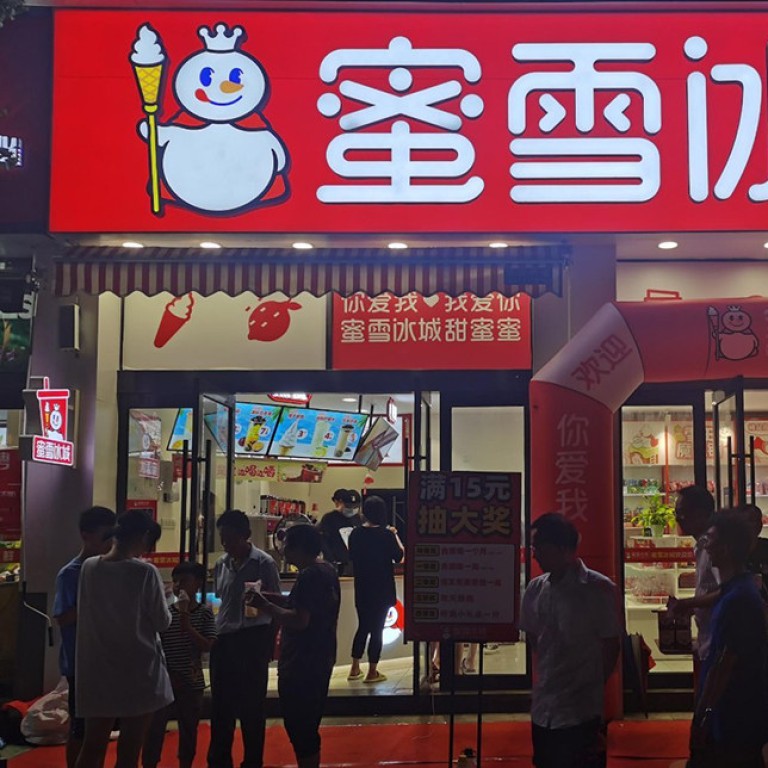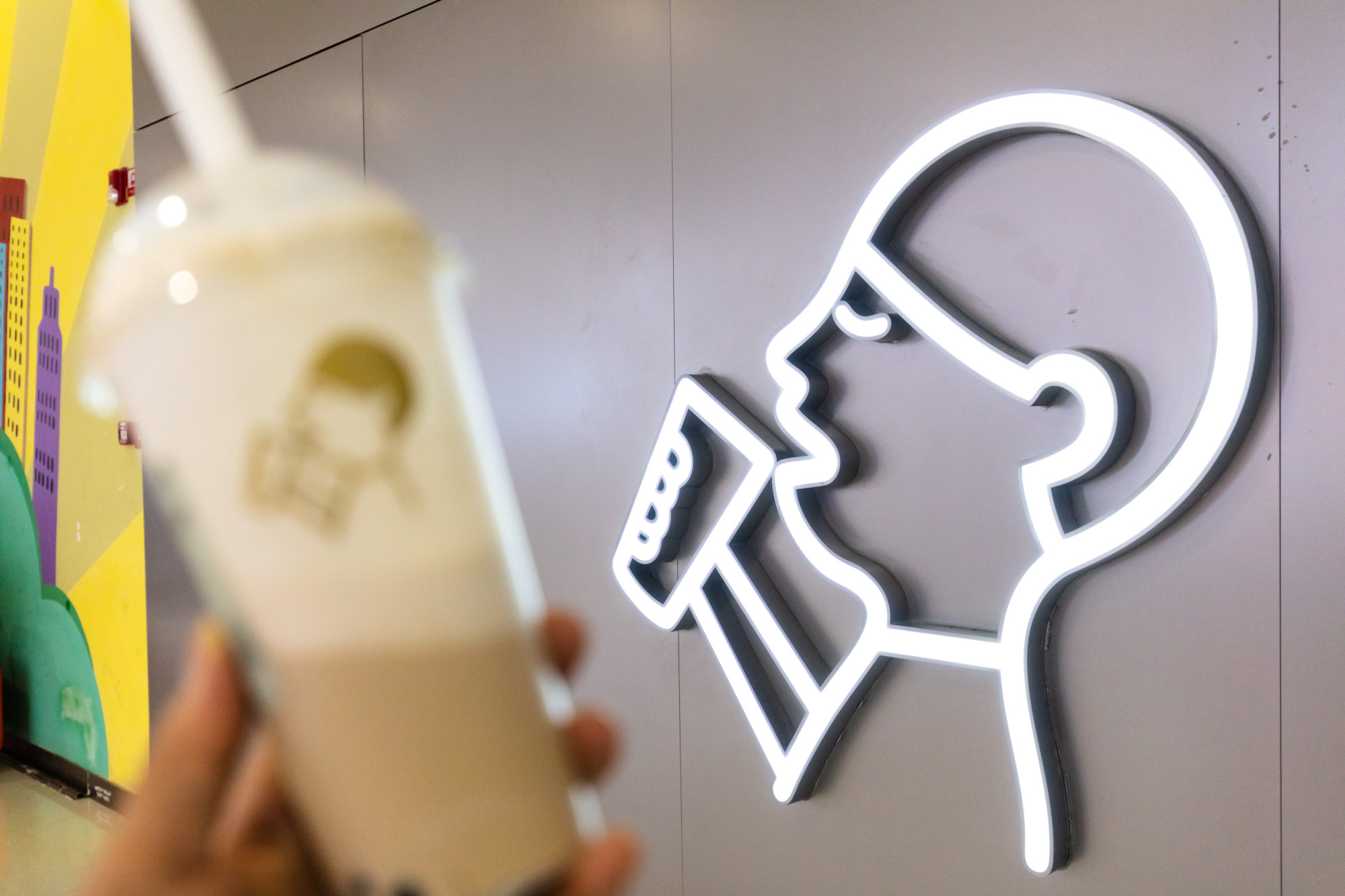
Influx of mainland Chinese F&B brands such as Hey Tea, Mixue could provide relief to Hong Kong’s retail property market, analysts say
- Chinese F&B operators are one of the forces driving retail demand, CBRE executive says
- Still early to tell whether these mainland brands will survive: JLL executive
Late one afternoon this month, as customers lined up outside a new high-street shop in Mong Kok for a cup of Mixue Bingcheng bubble tea, Lily Cheng finally ordered her favourite drink after queuing behind nearly a dozen people.
“I liked this milk tea brand when I was still in mainland China, and it just feels homely to find it in Hong Kong too,” said Cheng, 23, a postgraduate student from the mainland studying in the city.
Mixue, one of China’s largest milk tea makers with about 36,000 stores, opened its first store in the city in December and intends to apply for an initial public offering on the Hong Kong stock exchange. It is among a number of mainland food and beverage (F&B) brands that are expanding their footprint in Hong Kong.
This expansion trend is expected to provide some comfort to Hong Kong’s softening retail property market as well, analysts said.
“We are seeing sustainable demand coming from a lot of restaurant operators, and Chinese F&B operators are one of the forces driving retail demand lately,” said Marcos Chan, executive director and head of research at CBRE Hong Kong.
The F&B sector, which contributed nearly half of Hong Kong’s retail leasing demand last year driven by new Chinese restaurants, will continue to be the biggest source of demand in 2024 as well, according to CBRE.
For instance, according to JLL, retail operators from the mainland accounted for 28 per cent of all newcomers last year. In 2022, they accounted for less than 5 per cent.
“We definitely have been getting a lot more inquiries in the last few weeks alone, from mainland Chinese firms,” said Michelle Chiu, head of F&B and lifestyle in JLL’s retail department.
The rise in mainland F&B operators comes as a growing number of people arrive in Hong Kong through the city’s Top Talent Pass Scheme. About 30,000 people had arrived in Hong Kong under the scheme as of the end of November last year, according to Chris Sun Yuk-han, Hong Kong’s secretary for labour and welfare.
“The Hong Kong government is trying very hard to attract talent from mainland China, and we will continue to see more mainland university students or other high earners in the labour market,” CBRE’s Chan said. When more of the city’s population will be coming from the mainland, it is very logical for them to enjoy the food that they get in China, he added.
“It makes them feel more comfortable – like being at home,” said Lawrence Wan, senior director, advisory and transaction services, retail, at CBRE Hong Kong.
“F&B brands from [mainland] China want to use Hong Kong as a stepping stone before they enter the Southeast Asia market,” he said. For instance, an F&B brand from central China is forming a team in Hong Kong for further expansion, Wan said without giving details for confidentiality reasons.

Elsewhere, Hey Tea, a drinks brand which started in Shenzhen and shut seven of its stores in Hong Kong during the coronavirus pandemic, is expanding its footprint in the city once again. It opened a new 600 sq ft outlet in Mong Kok in October and another 750 sq ft store in Central in December.
In January, Hefu Noodle opened its first store in Hong Kong in a 1,576 sq ft space previously occupied by Prada in Causeway Bay. Hefu will pay HK$300,000 a month in rent, a 68 per cent discount on Prada’s lease.
Peking Hotpot, another mainland chain, has leased about 6,000 sq ft in Central this month, and will open its first restaurant in Hong Kong.
However, it is still too early to tell whether these mainland brands will survive, said JLL’s Chiu. “But I think that they definitely will push the market to a next level,” she added.
“They will improve the local brands that are already in Hong Kong. [These brands] need to be more competitive on variety, prices and food choices for their clients.
“And for the Chinese brands, they need to adapt to the local market. We see a lot of operators opening, for example, spicy noodle or very provincial cuisine shops, and they might not be very suitable for Hongkongers’ tastes.”
Expected growth in local consumption will also drive up rents. CBRE expects rents will rise by up to 5 per cent this year, while JLL estimates growth ranging from 5 per cent to 10 per cent. Meanwhile, both agencies said vacancies will stay flat or see a mild improvement in 2024.
Additional reporting by Sylvia Ma

